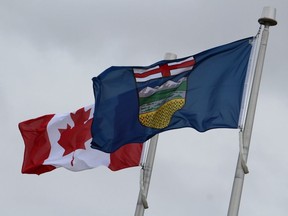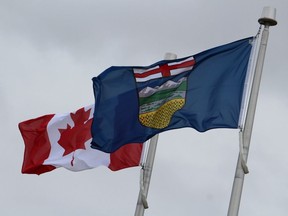
Article content
Common wealth?
Advertisement 2
Article content
Article content
Recommended Videos
Article content
Apparently King Charles offered the U.S. membership to the British Commonwealth and Trump said that is nice. If it’s true, Canada should withdraw from the Commonwealth and remove any semblance of our association with it. We’ve received no support from King Charles during this tariff war with the U.S. I guess the U.K., which is suffering economically since pulling out of the E.U., desperately needs a trade agreement with the U.S. Sadly, just another disappointment for Canadians, eh.
Peter J Middlemore Sr.
(We could certainly use the support.)
Futile endeavour for us
Casting a vote west of the Manitoba/Ontario border in a federal election is like a man with a vasectomy donating to a sperm bank. All the best of intentions, but basically a futile endeavour. Of course we should all vote, but, as Einstein said, insanity is repeating the same thing over and over and expecting a different result.
Article content
Advertisement 3
Article content
John Hancock
(That’s quite the analogy. But, yes, we should still vote.)
Separation is possible
I am and always will be a federalist. However, I am beginning to realize that Alberta separation is a real possibility. I truly hope we are seeing a Liberal media slate and biased polls because if the Liberals are elected again, it may not be Canada becoming the 51st state, but Alberta. I don’t want to be an American, so what does it take for Albertans to no longer be the punching bag for these Liberal policies?
Ray Stevenson
(Good question.)
Carney out to lunch
The reason Mark Carney is stealing the Conservative platform is because he hasn’t lived in Canada for nine years and has no idea what the issues are. He looks at the polls, then decides what is a winnable policy. He is such a Liberal.
Advertisement 4
Article content
Bill Crawford
(Got that right.)
Naturalization works
The City of Calgary began formally naturalizing roadways and open spaces in the late 1990s and early 2000s as part of broader sustainability and environmental stewardship efforts. The Naturalization Program was officially introduced in 2001, aiming to reduce maintenance costs, improve biodiversity, and create more sustainable urban landscapes. My hiring in 2002 aligns with the program’s early implementation phase, when much of the work — like converting frequently mowed areas to native grasses and wildflowers — was done with little public attention or formal recognition, despite its long-term benefits.
David Misfeldt
(We’re happy to offer recognition.)
Article content


